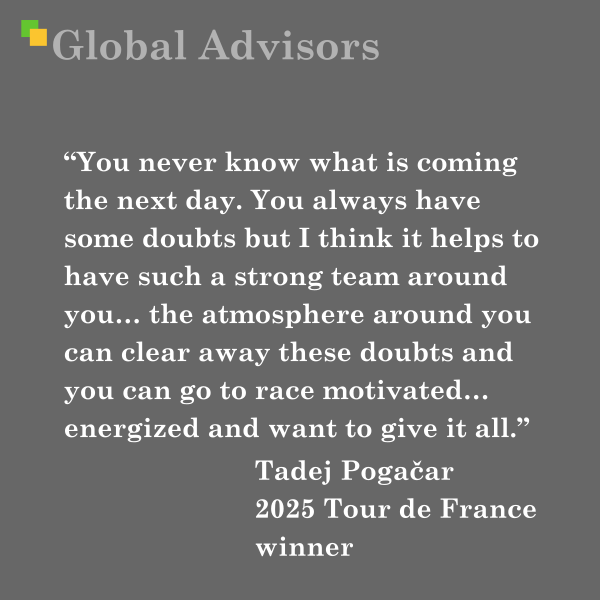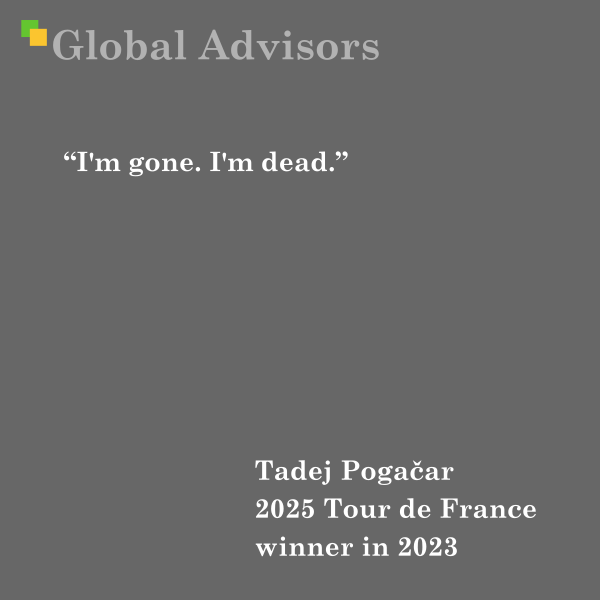“You never know what is coming the next day. You always have some doubts but I think it helps to have such a strong team around you… the atmosphere around you can clear away these doubts and you can go to race motivated… energized and want to give it all.” – Tadej Pogacar, 2025 Tour de France Winner’s Press Conference
Backstory and Context
On 27 July 2025, Tadej Pogacar crossed the line in Paris as the four-time winner of the Tour de France, elevating himself to the ranks of the sport’s all-time greats—equal with Chris Froome, and just one short of the fabled five Tour victories achieved by Merckx, Hinault, Indurain and Anquetil. The final stage—a rain-lashed, dramatic circuit finishing atop Montmartre—saw Pogacar both animated and tested, actively attacking in the closing kilometres, embodying the resilience, dynamism, and intelligence that have come to define his racing style.
But under the celebratory headlines of dominance lies a subtler truth, captured by Pogacar in his post-race reflection: doubt. His candid admission—“you always have some doubts but I think it helps to have such a strong team around you”—offered a rare insight into the psychology of a champion. Rather than distancing himself behind the veneer of certainty, Pogacar articulated a universal theme: at the highest levels of performance, uncertainty is omnipresent. The difference lies in how such uncertainty is navigated.
Throughout the 2025 Tour, Pogacar’s UAE Team Emirates proved instrumental. Facing formidable rivals and unpredictable conditions, the synergy within the squad became a defining factor. This support network—technical, tactical, and emotional—helped transform private doubts into public triumph. Pogacar’s willingness to credit his team for “clearing away these doubts” underscores a leadership model where vulnerability is not a weakness but a source of collective power.
His journey since his first Tour title has been marked by consistent adaptation: training innovation, tactical evolution, and psychological growth. After a dramatic and public defeat in 2023, Pogacar’s response was not just physical preparedness, but a more open embrace of teamwork and trust—qualities which, in 2025, elevated him above elite contemporaries such as Jonas Vingegaard and Wout van Aert.
The Person Being Quoted
Tadej Pogacar is more than a prodigy from Slovenia; he is the defining rider of his generation, blending technical mastery with an emotional intelligence rarely witnessed in elite sport. Known for his explosive riding and composed demeanour, he has become an emblem of modern cycling—where resilience, adaptability, and team cohesion underpin personal glory.
Pogacar’s career is built not merely on raw talent, but on the psychological fortitude to meet uncertainty head-on, forging confidence from honest doubt and shared effort. His humility in victory and openness in discussing the mental rigours of competition mark him as both a leader and a relatable figure in the unforgiving world of Grand Tour cycling.
Theoretical Foundations: Team Dynamics, Doubt, and High Performance
The themes articulated by Pogacar sit at the core of several influential academic frameworks:
-
Social Support in High-Performance Teams: Sports psychologists such as Professor Sophia Jowett have demonstrated that team cohesion and coach-athlete relationships are fundamental to resilience and long-term success. Social support—emotional, informational, and tangible—can buffer the destabilising effects of doubt, turning potential anxiety into enhanced motivation and goal focus.
-
Growth Mindset and Adaptive Confidence: Carol Dweck’s growth mindset theory posits that champions are differentiated not by the absence of doubt, but by their response to it. Pogacar’s openness to learning and team input exemplifies this, embracing guidance and challenge rather than viewing them through the lens of threat or inadequacy.
-
Cognitive Appraisal and Challenge-Threat Theory: The work of Richard Lazarus and, later, Blascovich & Mendes, explores how top performers experience physiological arousal before major events. Interpreted as a ‘challenge’ (with strong support), this arousal enhances performance; as a ‘threat’ (in isolation or with negative self-talk), it impairs it. Pogacar frames pre-race anxiety as fuel, supported and reshaped by his team into productive energy.
-
Self-Determination Theory (SDT): Edward Deci and Richard Ryan’s SDT argues that relatedness—the fundamental need to belong and feel connected—drives motivation and persistence. Pogacar’s testament to his team’s effect is a live case of this model: collective atmosphere drives and sustains elite individual achievement.
Enduring Significance
Pogacar’s 2025 statement is compelling because it bridges the gap between vulnerability and performance. It demonstrates that in sport, as in business and leadership, uncertainty is inevitable, but its impact depends on the strength of collective purpose and trust. In this interplay between individual doubt and team strength, extraordinary outcomes are made possible.




